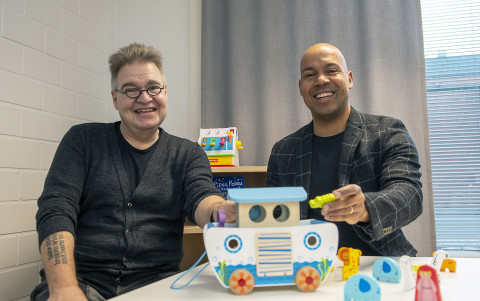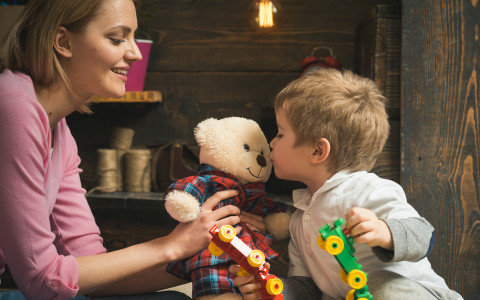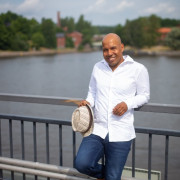The world is becoming more and more globalised, and our society increasingly multicultural. We have already learned to be fluent in our encounters with people speaking a different language, coming from a different culture or having a different skin colour. However, encountering and addressing different religions is still hard for us. Perhaps the next generation will learn to be more open towards different worldviews?
- Text Nina Venhe | Photos Varpu Heiskanen and Mostphotos, graphics Bettiina Lievonen
“In many ways, we are living in a time of change. Many practices relating to religions and worldviews are part of a tradition that is no longer relevant to maintain,” says Ismo Pellikka, Senior Lecturer of Religious Education, Ethics and History.
He participates in the Creating Spaces for Diversity of Worldviews in Early Childhood Education project, which aims to enhance teachers’ competence on worldview education and to develop early childhood pedagogy that recognises diversity. The project is carried out in collaboration between the Universities of Eastern Finland, the University of Helsinki, and the University of Oulu.
The project is also societally significant since the goal is for children to be able to encounter and address different worldviews with ease in the future.
“Worldview education is included in Finland’s national core curriculum for early childhood education, and this has raised a lot of questions about how it should be delivered. In the past, early childhood education was very Christianity-oriented, so taking into account the diversity of worldviews is a major change.”
In order for worldview education to change in the desired direction, teachers in early childhood education must be given appropriate tools.
“Teachers must be given sufficient support for dealing with this change in their profession. In our project, we seek to develop the professional competence of early childhood education teachers, so that the educational objectives of the national core curriculum can be achieved in day care centres and in family day care.”
According to Pellikka, Finland is the only country in the world where worldview education is included in the legislation governing early childhood education, and in the national core curriculum for early childhood education.
“And now it should be made a natural part of early childhood education.”
In the past, early childhood education was very Christianity-oriented, so taking into account the diversity of worldviews is a major change.
Ismo Pellikka
Senior lecturer
From a private matter to the public sphere
Until this millennium, religion in Finland has largely been divided in two: there’s been the Evangelical-Lutheran Church, and “the others”. However, the world rapidly is becoming more and more diverse, and encounters with different religions have become increasingly common in the 2000s.
“That is why we also need a more professional approach to religions and non-religious worldviews. In early childhood education, religions tended to be hidden in background in the past, or they were discussed in short, specifically designated sessions. Moreover, teacher education as a whole has been based on secular thinking, where questions related to religions and worldviews are either ignored or assigned to an expert of religion,” says Professor of Religious Education Martin Ubani.
Ubani prefers the term worldview over religion. According to him, as long as worldviews continue to be excluded from everyday situations and religious convictions are considered nothing but a private matter, worldview education cannot move forward, not even in early childhood education.
“Religion has become increasingly public. The world around us is changing, and our teacher education and early childhood education must change with it.”

Products of their time
According to Ubani, early childhood education is often perceived as nothing more than nursing, although it is guided by a curriculum that is based on pedagogy.
“One of the tasks of early childhood education is to prepare the child for school. The national core curriculum for basic education is based on the idea that when entering school, the child will have sufficient cultural capacity and a structured relationship with their own background. If education related to worldviews has been completely ignored in early childhood education, the child will have a lot of catching up to do.”
Ubani emphasises that there isn’t anything wrong with how early childhood education teachers were trained, or with the methods they used.
“They were products of their time and relevant back then.”
Bolder discussion within work communities
It is well known that the change will be slow, and that support and resources will be needed. Early Stage Researcher Elisa Balčin, who is writing her PhD thesis in the project, says that earlier studies clearly show how the field of early childhood education yearns for concrete measures and tools for addressing the changed needs.
“In an ideal situation, all worldviews represented by a group of children would be taken into consideration in early childhood education. Since worldviews are part of our life, they cannot be kept silent in public spaces, that is, in education offered by society.”
According to Balčin, one thing to help early childhood education teachers would be for work communities to openly discuss worldview education and the way it is taught.
“This would make the diverse knowledge and skills related to different worldviews more visible.”

Highlighting regional features
The project on worldview education starts from a holistic encounter with the child. It also takes account of the special features of the environment. In eastern Finland, for example, this means that the project examines different worldviews especially from the point of view of Orthodox religion, which is strong in the region.
Teacher students of early childhood education have organised various worldview sessions in the day care centres involved in the project. The idea has been to give early childhood education teachers new ideas for the implementation of worldview education.
“During these sessions, children familiarised themselves with religions and worldviews represented in their own group through, for example, puppet theatre performances and stories created by by students. Some groups also took a virtual tour of the Orthodox church building,” Balčin says.
Collaborative co-teaching was also tested and strengthened. According to Balčin, co-teaching increased teachers’ self-confidence and gave them confidence to deliver worldview education also independently.
“Co-teaching sessions provided an opportunity to ask, discuss and negotiate matters with colleagues, for example. The advantage of co-teaching is that the diverse skills of teachers can be made use of also as part of worldview education.”

From being cautious to being open
Children have different relationships with religion, and they enter early childhood education from very different backgrounds. This means that room must be given for children's questions, discussion and reflections.
“We have, for a long time, had a very bureaucratic approach to worldview education: we want to do everything exactly right and we are very careful about not hurting anyone’s feelings,” Ubani says.
According to him, education related to worldviews is often over-interpreted, and religions are hidden in the background so as to “protect” children from them.
“This makes religions something that should be kept a secret and be ashamed of, even though our society would benefit from acknowledging the existence of different religions, just like we acknowledge the existence of different languages and cultures. The same ease could be applied to encountering different worldviews, and let children wonder about different religions, too.”
Ubani emphasises that the goal is not “force feed” any worldview to anyone, but rather to openly and equally discuss different religions and worldviews as part of the pedagogical culture.
“Even small children are often interested in matters relating to worldviews. It is good to send them a message that they are in a safe space to talk about things that determine our life. It’s part of the education situation. It would be worrying if social practices steered in the other direction and extinguished the spark for discussion.”
Studies show that younger and younger people are interested in religions. And even though the number of people without any religion is also high, the backgrounds of families are very diverse, and people working in early childhood education should be sensitive to identifying and accepting different views without making any value judgements.
“However, we need modern pedagogical tools for encountering religion and the child, and we are now working together to create those.”
Even small children are often interested in matters relating to worldviews. It is good to send them a message that they are in a safe space to talk about things that determine our life.
Martin Ubani
Professor
Change has begun
In the day care centres participating in the project, the development of worldview education has been met with enthusiasm, and there has been a clear need for it.
“Worldview education is linked to the overall growth of the child, and the related pedagogy is an important part of multi-valued and equal education. The underlying idea is to learn to talk neutrally about different worldviews already as a child,” Pellikka explains.
The researchers emphasise that early childhood education teachers don’t have to know everything about everything but should be ready to wonder and discuss things related to worldviews with the child.
“Our project has shown that teachers in early childhood education are worried about having to become experts of religion. That’s not what this is all about. Teachers will continue to be experts of education, and religions are a pedagogical matter.”
The change will be implemented together. The university’s teacher educators say that they’ve learned as much as early childhood education teachers during the project.
“We certainly did not embark on this project assuming that we know everything there is to know. The idea is to work together to find best practices and to create new traditions,” Pellikka says, summing up the project.
So, change has begun. The researchers are happy about finally getting to do research on the subject, since it’s been decades since the last research-based development of the matter.
“We are also hoping that the project will continue. By working together, we can meet the educational objectives set – the mindset around this issue will not be changed overnight.”
More information about the project





